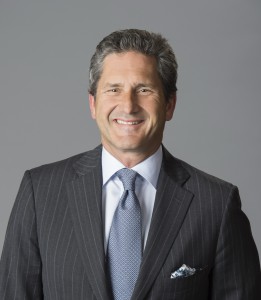
After more than 40 years of operation, DTVE is closing its doors and our website will no longer be updated daily. Thank you for all of your support.
Liberty Global: at the crossroads
Liberty Global has been a lynchpin of the European cable industry for the best part of two decades now, expanding across the continent via a series of deals while withdrawing from markets where it lacked the scale to compete.

Liberty Global CEO, Mike Fries
The company’s recent deal with Vodafone that will see it pull out of Germany and central Europe marks its biggest reorientation to date. Following completion of the deal, the UK’s Virgin Media will loom even larger in Liberty’s line-up of assets than it currently does, sitting alongside its Dutch JV with Vodafone, majority-owned Telenet in Belgium and UPC Switzerland.
Liberty Global CEO Mike Fries acknowledged the growing prominence of the UK in a recent appearance at Goldman Sachs’ Communacopia Conference, where he said that Virgin Media was its “best cable asset” accounting 60% of operating cash flow and which “looks most like a US cable asset” of all the company’s operating units.
Fries has over the last couple of years expressed a certain degree of sanguinity about Brexit and the UK’s imminent departure from the EU did not figure at all in his Communacopia conversation. Instead, he focused on the steadiness of the UK business and the fact that the local regulator encouraged investment in infrastructure, meaning that there is a reasonable degree of certainty that Liberty would be able to get a return on its investment in Project Lightning.
Where the Vodafone sale leaves Liberty overall remains to be seen. The deal will give the company a US$12 billion cash injection and Fries indicated that returning a substantial chunk of this to shareholders is very much on the agenda.
Shareholders have certainly been crying out for attention. The company’s stock is currently trading at its lowest value for six years and at just under half its 2015 peak, weighed on to some extent by its extensive investment in network build-out. At Communicopia, Fries was keen to play down the idea that Liberty would immediately spend all – or even half – the cash on acquisitions and said it would “lean into stock” when deciding what to do. He emphasised that there were “no transactions” that Liberty was currently looking at.
Fries also said that Liberty is now in a position to reap the cash-flow benefits of its investment in fibre infrastructure.
For all this promise of financial bounty, big questions remain over the future of the company’s remaining continental European assets, and Fries was relatively open about the options on the table at the Goldman Sachs event. He said that the current level of competition in Switzerland was not sustainable and that the market needed to “rationalise”. There has been much speculation about what shape that rationalisation may take. Fries openly said that consolidation was possible, and more or less identified Sunrise as the likely partner through a process of elimination.
In the meantime, however, he said that Liberty would continue to invest in the market. The company this week announced the European rollout of its Horizon version 4 TV platform and Fries said that the EOS box that it sits on – which has already been deployed in the UK as the V6 – would be rolled out to the Swiss market this year, followed by the launch of 1Gbps internet next year.
Fries also said Liberty would most likely either buy out its partner or sell its stake in the VodafoneZiggo joint venture in the Netherlands within the next 24 months, with taking the company public identified as a possible third way. While the fixed business in the Netherlands continues to deliver, he said, the mobile business is challenged. However, he said, the Dutch business “may be on the point of turning” and delivering on its promise.
Fries’ evident openness to deals in both markets suggests that Liberty Global may look like a very different company in two years’ time. Following the disposal of the German and CEE business to Vodafone, it will be smaller, primarily comprising the UK and Ireland business and three businesses in markets with their own challenges, only one of which it wholly owns. Fries was clear in his Communacopia talk that this would not have an adverse impact on the company and pointed out that Liberty would continue to support the businesses it is exiting for a period of time with further revenues to the tune of US$200 million from this in prospect. Nevertheless, with uncertainty hanging over the future of the Swiss business and a possible sale of its stake in the VodafoneZiggo JV being mulled, a very much more UK-focused company could emerge.
Vodafone meanwhile is set to supplant Liberty as the biggest player in cable across the continent as a whole, with a strategy that leans more than Liberty’s has on bundling fixed and mobile together and on deeper fixed-mobile convergence. Vodafone’s stockholders have, like Liberty’s not had an easy time over the course of this year, for a variety of reasons, but the company’s growth story remains relatively compelling. Both Liberty and Vodafone share a confidence in the ability of infrastructure investment to deliver returns and a wariness about going big on content. Whatever Liberty does next, it is likely to lean towards this tried and tested prescription.


